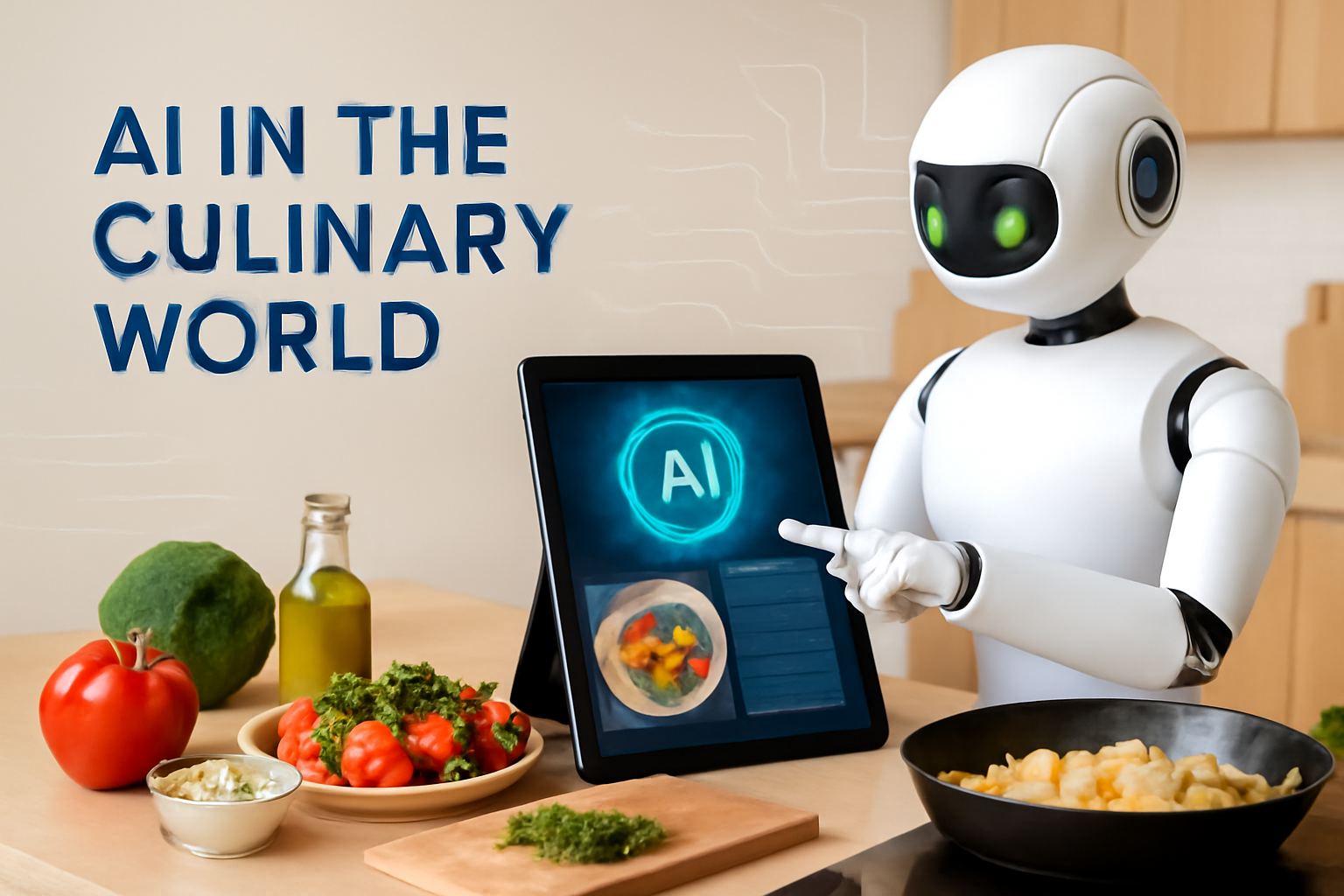Location
Mount Vernon, WA 98274
Location
Mount Vernon, WA 98274

Artificial Intelligence is making waves in the culinary world, transforming how we prepare, cook, and even enjoy our meals. From recipe suggestion apps to smart kitchen assistants, the integration of AI technology is paving the way for innovative cooking experiences.
The culinary landscape is undergoing a significant transformation as artificial intelligence (AI) steps into the kitchen. While smart appliances have become commonplace, the latest advancements in AI are enabling a new era of culinary creativity, efficiency, and personalization that promises to redefine the way we approach cooking.
One of the most exciting developments is the rise of AI-powered recipe applications that not only suggest meals based on the ingredients you have but also adapt to dietary preferences and restrictions. For instance, platforms like Chef Watson by IBM utilize vast databases of recipes and flavor profiles to recommend unique dish combinations. This technology encourages home cooks to experiment beyond their usual repertoire, fostering culinary exploration and reducing food waste.
Moreover, AI is revolutionizing food safety and quality control in professional kitchens. Smart sensors can monitor cooking temperatures and times, ensuring that meals are prepared to perfection while minimizing the risk of foodborne illnesses. This technology is particularly beneficial in high-volume settings, where maintaining consistency and safety is paramount.
In the realm of meal planning, AI-driven tools are streamlining the process. Services like PlateJoy offer personalized meal plans tailored to individual nutritional needs and preferences, automatically generating shopping lists based on selected recipes. This not only saves time but also helps in making healthier food choices, promoting better eating habits.
As consumers become more health-conscious, AI is also stepping up to provide nutritional insights. Apps like MyFitnessPal use AI algorithms to analyze users’ eating habits and provide feedback, making it easier for individuals to track their dietary intakes and make informed decisions. This shift towards health-oriented cooking is complemented by innovations in food technology, such as lab-grown meats and plant-based alternatives, which are gaining popularity among environmentally conscious consumers.
Furthermore, the integration of AI with voice-activated devices like Amazon’s Alexa or Google Home is enhancing the cooking experience. Users can now ask for recipe instructions, cooking tips, or even to set timers hands-free while they juggle multiple tasks in the kitchen. This convenience allows for a more enjoyable cooking process, especially for those who may feel overwhelmed by complex recipes.
However, the rise of AI in the kitchen does raise questions about the future of traditional cooking practices and culinary skills. As technology becomes more prevalent, there is a fear that the art of cooking may be lost. Balancing the benefits of AI with the need to maintain culinary traditions will be crucial as we navigate this new culinary frontier.
In conclusion, AI is not just a trend in food technology; it is a catalyst for change that is enhancing how we cook and eat. By embracing these innovations, we can look forward to a future where cooking is more accessible, efficient, and enjoyable, while still honoring the traditions that make food a central part of our lives.